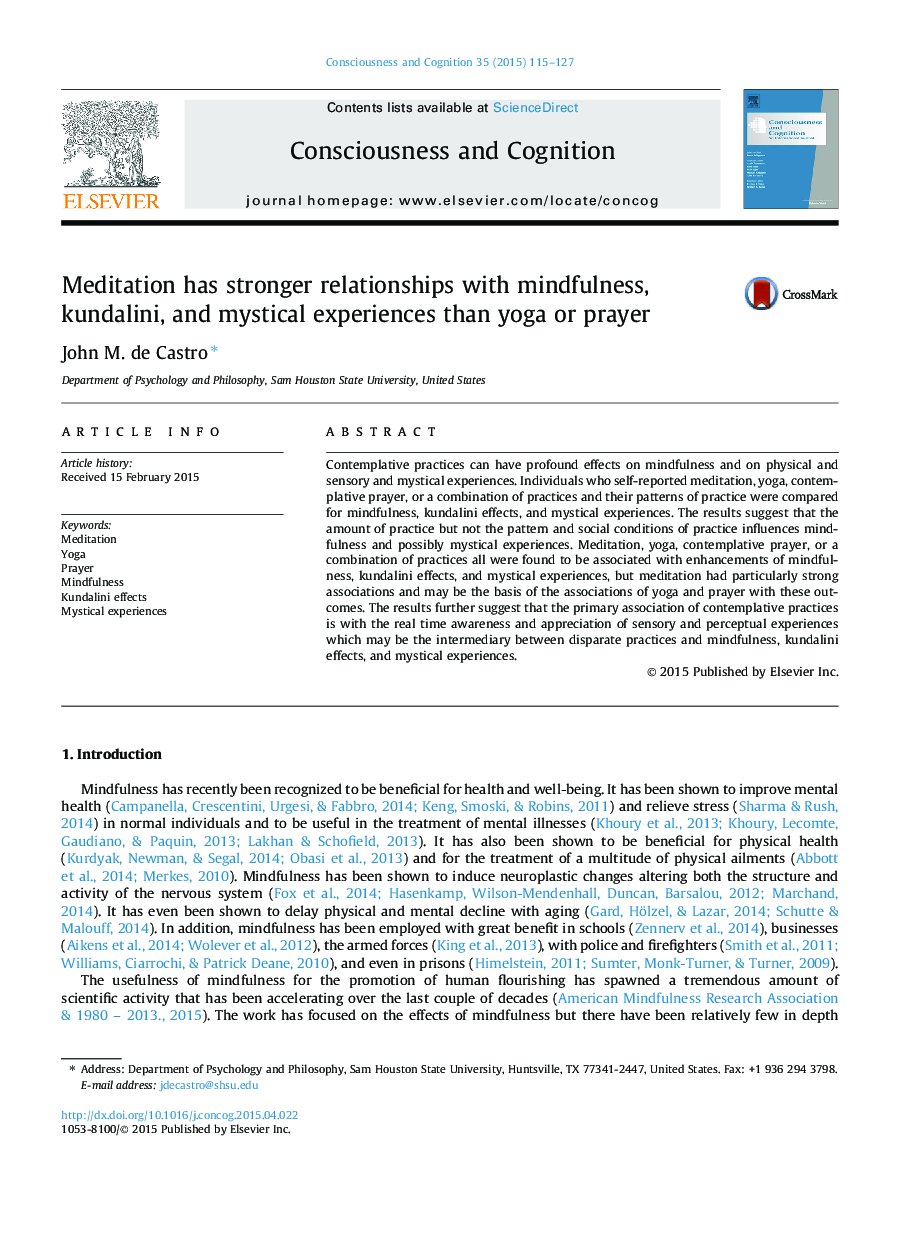| Article ID | Journal | Published Year | Pages | File Type |
|---|---|---|---|---|
| 7289278 | Consciousness and Cognition | 2015 | 13 Pages |
Abstract
Contemplative practices can have profound effects on mindfulness and on physical and sensory and mystical experiences. Individuals who self-reported meditation, yoga, contemplative prayer, or a combination of practices and their patterns of practice were compared for mindfulness, kundalini effects, and mystical experiences. The results suggest that the amount of practice but not the pattern and social conditions of practice influences mindfulness and possibly mystical experiences. Meditation, yoga, contemplative prayer, or a combination of practices all were found to be associated with enhancements of mindfulness, kundalini effects, and mystical experiences, but meditation had particularly strong associations and may be the basis of the associations of yoga and prayer with these outcomes. The results further suggest that the primary association of contemplative practices is with the real time awareness and appreciation of sensory and perceptual experiences which may be the intermediary between disparate practices and mindfulness, kundalini effects, and mystical experiences.
Keywords
Related Topics
Life Sciences
Neuroscience
Cognitive Neuroscience
Authors
John M. de Castro,
